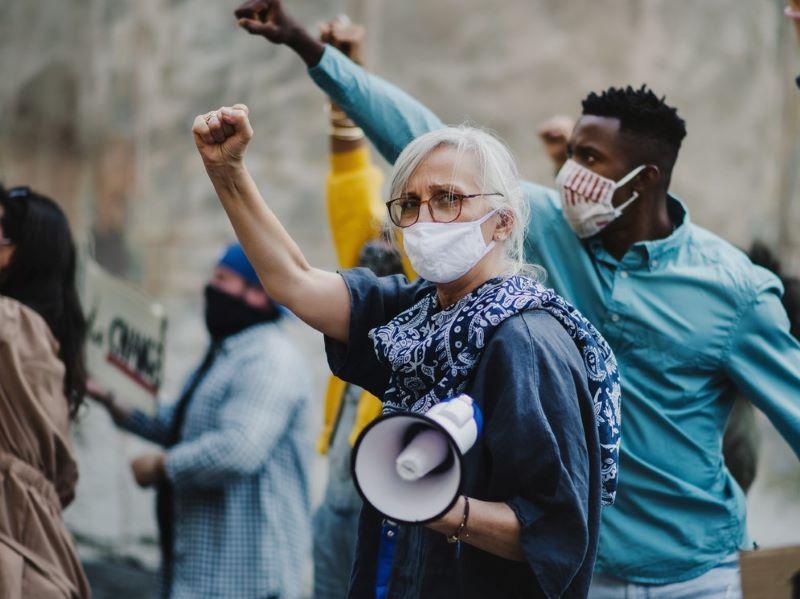
Questions you should ask yourself about your role in institutional racism
Questions individuals working in academia should ask themselves to gain an honest appraisal of their role in institutional racism and take active steps to counteract it, by Henrika McCoy and Madeline Y. Lee

You may also like
Popular resources
Universities, and individuals working for them, often expect black, Asian and minority ethnic (BAME) faculty to lead efforts to address embedded racism. Institutional-level questions were addressed in a previous resource, “Yes, your university perpetuates racism against BAME academics: what can you do?” Equally important are individuals in academia who must answer their own questions. They should identify how they perpetuate racism in the “ivory tower” and decide how to change.
Expected personal sacrifice
Leadership and committees
- Do you expect BAME colleagues to participate in or take the lead on diversity, equity, and inclusion (DEI) initiatives?
- Do you expect BAME colleagues to identify DEI problems rather than seeing it as everyone’s responsibility?
Teaching and mentoring
- Do you expect or assume BAME colleagues will teach courses about race, ethnicity and diversity?
- Do you always refer BAME students to BAME colleagues for support or mentoring? Do you consider the impact on your BAME colleagues, such as their time and emotions, or how many other people are asking? Do you expect your BAME colleagues to be solely responsible for supporting other BAME colleagues?
Personal education
- Do you expect BAME colleagues to educate you about racism and how to be anti-racist?
- Do you expect BAME colleagues to correct you when you engage in racist behaviour and then become angry or defensive when they do so (or do not)?
Remember, when you avoid participating in or leading on DEI work within your institution or seek education about racism, the potential negative impact on BAME colleagues is more important than the benefit to you.
Devaluing BAME expertise
- Do you consider BAME colleagues’ research about BAME people and related topics as less important, challenging or impactful than your own?
- Do you assume that BAME colleagues research stems from personal experience if their focus is on BAME individuals or issues that disproportionately or negatively impact them?
- When BAME colleagues hire BAME staff, do you assume it was because they are BAME versus experts and qualified?
You do not have the right to devalue your BAME colleagues’ work by questioning their credentials, accomplishments or expertise. Consider how many additional obstacles they might have traversed to achieve what they have, without the advantage of white privilege.
Expected resilience
- Do you fail to consider how the pandemic or racism impacts BAME colleagues differently from you?
- Do you expect BAME colleagues to always listen to, actively engage in or lead discussions about topics that negatively impact BAME persons, without considering the impact on them?
- Do you think negatively of BAME colleagues when they choose not to participate in conversations about issues such as racism or the pandemic? Do you decide they have a “bad attitude” or are “not a team player” and make that a defining characteristic?
It is a privilege to learn about racism instead of experiencing it every day, and teaching you might be a burden or trigger trauma for your BAME colleagues. Thus, it is their right, not yours, to choose when and whether they will engage.
Invalidation of lived experiences
- Do you fail to listen or accept as true the racist experiences BAME colleagues identify, whether with students, staff, administration, colleagues, or even you?
- Do you require BAME colleagues to prove they experienced racism, and if not convinced, invalidate or dismiss their experiences?
Do not say, “I am colour-blind, I do not see colour.” This fails to acknowledge that BAME colleagues have different experiences due to the permanence of racism and its pervasive impact. BAME experiences are not monolithic, and you have not heard them all. You will hear new experiences that challenge your beliefs. You do not have the right to conclude that, because it is new to you, it is not true.
Expected anointing
- Do you expect BAME colleagues to validate you once you decide that you understand racism or are an ally?
- Do you expect BAME colleagues not to hold you accountable when you engage in racist behaviour because your intentions were good, or it was unintentional?
- Do you expect BAME colleagues to only call out your behaviour privately because you see yourself as an ally?
Interest in becoming anti-racist, or being an ally, does not equate to being anti-racist or an ally. Learn what white privilege is and be aware of your own. White privilege ensures that your ideas, perspectives, and contributions are automatically seen as important, valuable, and valid. Your BAME colleagues do not have this unearned advantage. Identify and understand your role in perpetuating racism and how you benefit.
Your next steps to drive change
Perhaps you recognise how you perpetuate racism in the “ivory tower”. Ask yourself the aforementioned questions, answer honestly, and take informed action. Become a disruptor. Racism can only be eliminated through a relentless, unwavering commitment. Now, as an individual, become part of the solution.
Henrika McCoy is the interim associate dean for academic affairs and student services and an associate professor of social work at the Jane Addams College of Social Work, University of Illinois Chicago.
Madeline Y. Lee is an associate professor in the department of social work at California State University San Marcos.
If you would like advice and insight from academics and university staff delivered directly to your inbox each week, sign up for the Campus newsletter.
Additional Links
For more resources related to this topic, go to our collection Being Black in the academy.


